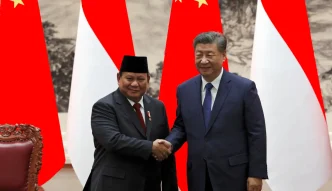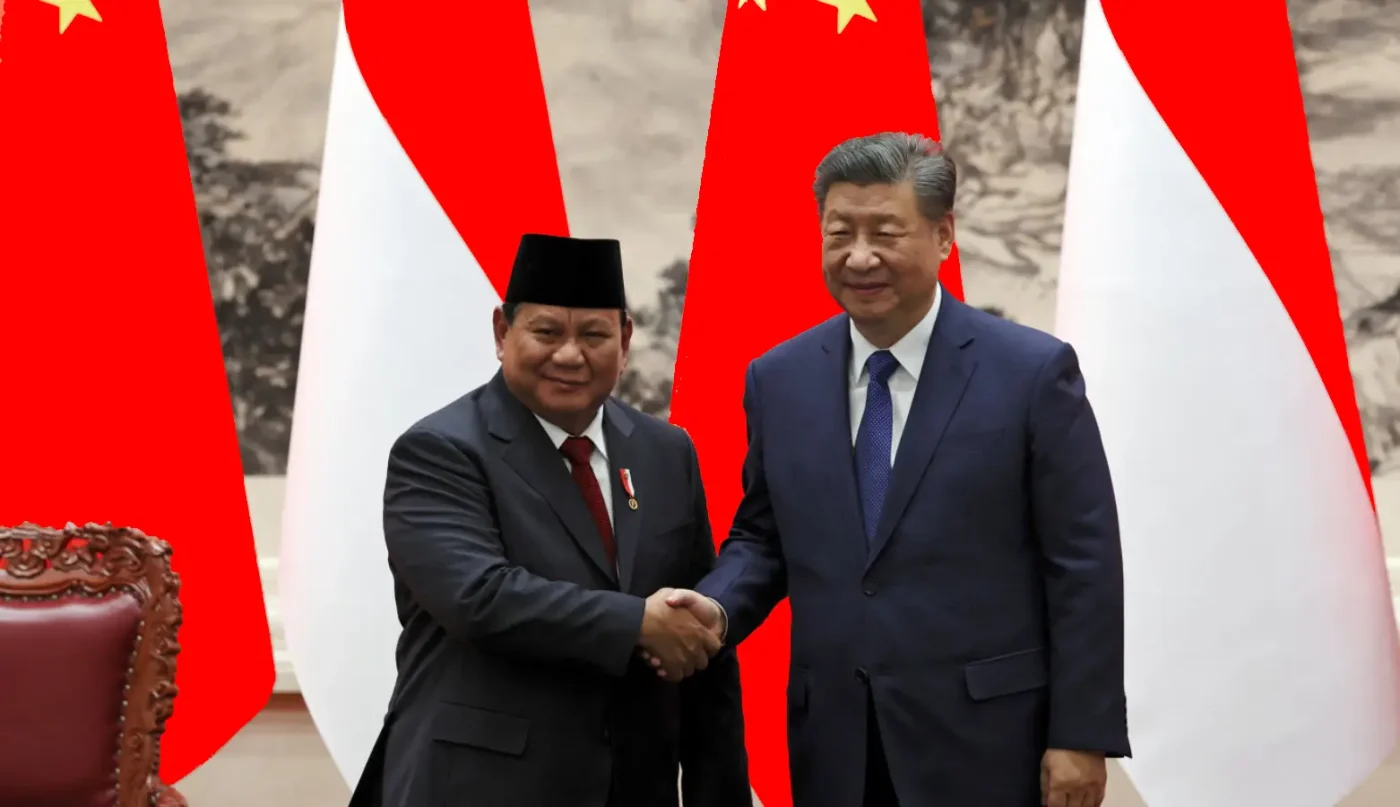As traditional donor countries scale back their contributions to global development, Indonesia is positioning itself as a proactive player in international cooperation. With the recent closure of the US Agency for International Development (USAID) and a notable decline in aid from Western nations, Jakarta is seizing the opportunity to offer alternative models of partnership rooted in mutual benefit and solidarity with the Global South.
A Shifting Global Landscape
The global development arena is undergoing a profound transformation. The United States, once a leading provider of humanitarian aid, contributing roughly 40 percent of the world’s total, has formally dismantled USAID. On July 1, 2025, US Secretary of State Marco Rubio announced the closure, criticizing its “charity-based model” as ineffective and misaligned with American geopolitical interests. A study published in The Lancet warns that this rollback, combined with broader cuts under President Donald Trump’s administration, could result in over 14 million deaths among vulnerable populations by 2030.
Meanwhile, the Organisation for Economic Co-operation and Development (OECD) reported a 7.1 percent drop in development aid from its 33 Development Assistance Committee (DAC) members in 2024, marking the first decline in six years. Total aid amounted to US$212.1 billion, representing just 0.33 percent of the group’s combined gross national income. This reduction, driven by nationalist politics and post-pandemic budget constraints in Western countries, has created a vacuum in global development efforts.
Andy Sumner, a professor of international development at King’s College London, pointed out that this retreat signals a departure from earlier policy norms, such as commitments to climate action and gender equality. He highlighted the US rejection of the UN Sustainable Development Goals under Trump as a clear example of this shift. Speaking at a discussion hosted by the Indonesian International Islamic University (UIII) and the newly launched Indonesian Institute for Foreign Affairs (IIFA) on July 3, 2025, Sumner argued that emerging economies like Indonesia could fill the void left by Western donors.
Indonesia’s Proactive Role
Indonesia, a developing nation itself, is not content to remain a passive recipient of aid. Instead, it is stepping forward with renewed commitment. Rina Setyawati, director for international development cooperation at Indonesia’s Foreign Ministry, emphasized this shift during the UIII-IIFA discussion in Depok, West Java. “We have become a proactive player,” she said, pointing to Indonesia’s growing role in offering development support to other nations.
A key milestone in this journey is the establishment of the Indonesian Agency for International Development (Indonesia AID) in 2019. According to Rina, this agency represents a cornerstone in building a robust cooperation ecosystem. “We offer more than grants, not only money. [We offer] partnership, empathy, and grounded solutions,” she explained. Her remarks underscore a model of development assistance that prioritizes collaboration over mere financial aid, focusing on solutions tailored to the specific needs of partner countries.
Rina also stressed the importance of mutual benefit in Indonesia’s approach. “Mutual benefit is important as we ensure that we can grow together,” she noted, adding that shared project ownership is critical to aligning initiatives with the priorities of both Indonesia and its partners. This philosophy is particularly resonant with fellow Global South nations, with whom Indonesia shares a common history of struggle and resilience. “We [Global South countries] speak the same language of struggle, resilience, and aspirations,” Rina affirmed.
Despite the shrinking pool of global aid, several countries have approached Indonesia seeking collaboration, signaling a new space for Jakarta to work alongside other emerging donors. This trend reflects a broader reorientation of development cooperation, with countries like Indonesia taking on more prominent roles in shaping the future of international partnerships.
A Unique Bridging Role
Indonesia’s position in the global arena adds to its potential as a development leader. As a member of BRICS—a coalition of emerging economies including Brazil, Russia, India, China, and South Africa—and an accession country to the OECD, Indonesia occupies a unique space between different global perspectives. Andy Sumner highlighted this during the Depok discussion, noting that Indonesia’s dual identity equips it to act as a bridge between the Global South and established economic powers.
Indonesia’s historical legacy as a convener of international dialogue further bolsters its credentials. The 1955 Bandung Conference, hosted by Indonesia, brought together Asian and African nations to promote economic and cultural cooperation while opposing colonialism. This event, often referred to as the birthplace of the “Bandung Spirit,” remains a touchstone for Indonesia’s commitment to multilateralism. Sumner suggested that this legacy positions Indonesia to unite countries still dedicated to international development in the face of rising global tensions.
Recent actions by Indonesian leadership reflect this commitment. At the BRICS summit in Rio de Janeiro in 2025, President Prabowo Subianto urged member states to revive the Bandung Spirit and strengthen multilateral cooperation. Accompanying the president, Coordinating Economic Minister Airlangga Hartarto echoed this sentiment, emphasizing the importance of economic partnerships among developing nations. “Economic partnership among developing nations is very important,” Airlangga stated in a press release following the summit.
Indonesia’s formal entry into the BRICS’ New Development Bank (NDB) in March 2025, just two months after joining BRICS, further solidifies its role in fostering economic collaboration. Established in 2015 with an initial capital of US$100 billion, the NDB aims to support infrastructure and sustainable development projects in member countries and beyond. Indonesia’s participation in the bank offers a platform to channel resources and expertise to other developing nations, reinforcing its status as a development partner.
Challenges and Opportunities Ahead
While Indonesia’s ambitions in global development cooperation are clear, the road ahead is not without challenges. The decline in Western aid, while creating opportunities for emerging donors, also places additional pressure on countries like Indonesia to deliver meaningful results with limited resources. Balancing national priorities with the needs of partner countries will require careful coordination and sustained political will.
Moreover, the shifting norms in global development, as described by Sumner, pose ideological challenges. With Western donors increasingly prioritizing domestic concerns over international commitments, Indonesia must navigate a landscape where traditional frameworks for aid—such as those tied to climate action or gender equality—may no longer hold sway. Crafting a model of cooperation that resonates with both Global South partners and emerging donors will be critical to Indonesia’s success.
Yet, the opportunities are significant. Indonesia’s emphasis on empathy, partnership, and shared ownership offers a refreshing contrast to the often top-down approaches of traditional aid models. By leveraging its unique position as a bridge between different global blocs, Indonesia has the potential to redefine development cooperation in a way that prioritizes solidarity over charity.
Rina Setyawati’s vision of Indonesia as a proactive player is already taking shape through initiatives like Indonesia AID and participation in platforms like the NDB. As she noted during the discussion in Depok, the country’s approach is grounded in a deep understanding of the challenges faced by developing nations—a perspective that could prove invaluable in an era of diminishing Western aid.
Looking Forward
As Indonesia carves out a larger role in global development, questions remain about the long-term impact of its efforts. Can Jakarta sustain its commitment amid domestic economic pressures? And how will its model of partnership evolve in response to changing geopolitical dynamics? For now, Indonesia’s proactive stance signals a new chapter in international cooperation—one where the Global South takes center stage in addressing shared challenges.
With traditional donors stepping back, Indonesia’s journey as a development partner offers a glimpse into a future where empathy and mutual growth define global collaboration. Whether this vision can fully materialize remains to be seen, but Jakarta’s determination to lead by example is undeniable.
















